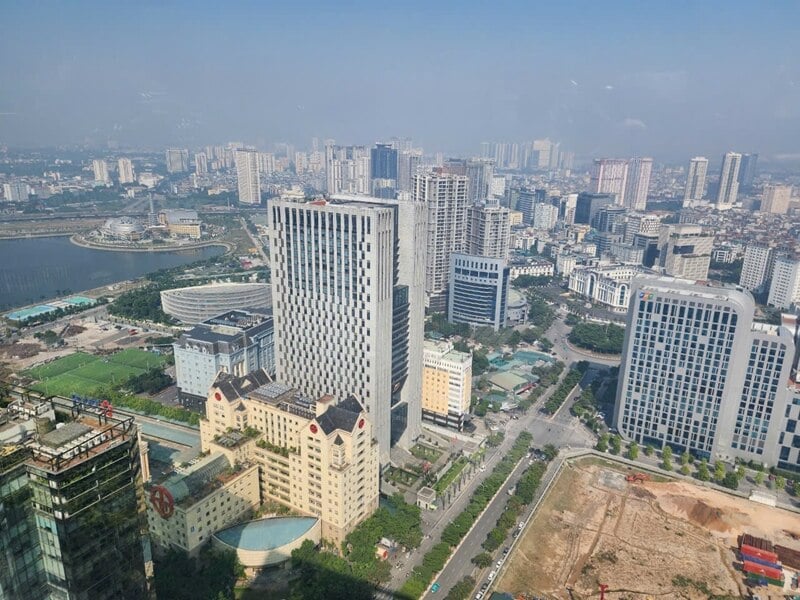 |
| Illustration: Bich Lien |
Regarding the difficulty in accessing land for businesses to implement projects providing services in the health and education sectors, Deputy Minister of Natural Resources and Environment (MONRE) Le Minh Ngan had an interview with reporters on this issue.
Reporter: Sir, could you please tell us what the 2024 Land Law and its implementing documents stipulate regarding land allocation to implement projects providing services in the fields of health and education for investors?
Deputy Minister Le Minh Ngan : Compared to the 2013 Land Law, the 2024 Land Law has many changes in regulations on land recovery for socio -economic development for national and public interests. The State recovers land in cases where it is absolutely necessary to implement socio-economic development projects for national and public interests in order to promote land resources, improve land use efficiency, develop modern socio-economic infrastructure, implement social security policies, protect the environment and preserve cultural heritage in 31 specific cases stated in Article 79 of the Land Law, regardless of the source of investment capital inside or outside the state budget, including projects in the fields of education, health, physical training and sports, etc.
Regarding these cases, Clause 5, Article 124 of the Land Law also allows land allocation and lease without auctioning land use rights, without bidding to select investors to implement projects using land to implement projects in cases where the State recovers land according to the provisions of Article 79 without using public investment capital or investment projects under the public-private partnership method in cases where there are interested investors but only one investor meets the conditions for inviting interest in the project, the number of interested investors must be determined according to the provisions of the law on bidding, the law on industry and sector management.
In case there are 2 or more interested investors, it is necessary to conduct an auction of land use rights or a bidding process to select investors to ensure fairness and transparency in land access among investors, limit land concentration in a few interest groups and ensure that land resources are allocated fairly and effectively, increasing revenue for the state budget...
In addition, Clause 1, Article 127 of the Land Law allows cases where the State budget capital is not used and the land recovery is subject to Article 79 of the Land Law, in which the investor chooses the option of negotiating the land use rights and does not propose land recovery, to use the land to implement socio-economic development projects through an agreement on receiving land use rights.
Or in the case where the person having the right to use land has proposed an investment project if it falls under the case prescribed in Article 79 of this Law but is in accordance with the land use planning and has a request to change the land use purpose and the competent state agency approves the investment policy and simultaneously approves the investor according to the provisions of the law on investment, then the land is allowed to be used to implement the investment project without the State recovering the land (Clause 6, Article 127).
Thus, projects providing services in the fields of health and education are eligible for land recovery by the State according to the provisions of the 2024 Land Law without any distinction in investment capital sources.
Reporter: So what are the approaches to land by investors in this field, sir?
Deputy Minister Le Minh Ngan : The 2024 Land Law stipulates that land access methods for projects, including health and education projects, are very diverse and flexible, depending on the actual implementation situation, and there are also methods to support and promote investment (land allocation and land lease without auction or bidding).
 |
| Deputy Minister of Natural Resources and Environment Le Minh Ngan. Photo: TN&MT Newspaper |
At the same time, there are also methods that follow market principles, based on competition among enterprises, ensuring fairness and transparency (auction of land use rights, bidding to select investors to implement projects using land), and methods that create initiative for enterprises (agreement to receive transfer of land use rights or having land use rights).
Thus, according to the provisions of the Land Law, investors' access to land use rights in various fields, including health and education, is more open, creating a public, transparent, fair and favorable environment for investors to access land and have land to carry out projects for local socio-economic development, in accordance with the State's policies, guidelines and laws.
Reporter: Some people say that the 2024 Land Law stipulates that enterprises leasing land from the State have the right to mortgage, but there are no implementation instructions, leading to difficulties in identifying the mortgagee when mobilizing bonds with real estate as collateral. What is your opinion on this issue?
Deputy Minister Le Minh Ngan : The 2024 Land Law stipulates in great detail the mortgage rights of economic organizations for each form of land use. Accordingly, economic organizations that are allocated land by the State with land use fees, or leased land with one-time land rent for the entire lease term have the right to mortgage land use rights and assets owned by them attached to the land at credit institutions licensed to operate in Vietnam, at other economic organizations or individuals according to the provisions of law (Point d, Article 33); economic organizations that are leased land by the State with annual fees, people of Vietnamese origin residing abroad, and economic organizations with foreign investment capital have the right to mortgage assets owned by them attached to the land at credit institutions licensed to operate in Vietnam, at other economic organizations or individuals according to the provisions of law (Point b, Article 34).
The mortgage implementation according to the above provisions must fully satisfy the conditions in the Land Law (Article 45) such as having one of the types of Land Use Right Certificates as prescribed, the land is not in dispute or the dispute has been resolved by a competent state agency, the judgment, decision of the Court, decision or award of the Arbitration has come into legal effect; the land use right is not subject to seizure, other measures are not applied to ensure enforcement of judgment according to the provisions of the law on civil judgment enforcement; is within the land use term; the land use right is not subject to temporary emergency measures according to the provisions of law...
Thus, the Land Law has a relatively complete legal system for enterprises to exercise mortgage rights related to land use rights.
As for the mortgage when mobilizing bonds with real estate as collateral, which is not within the scope of the Land Law but within the scope of the Law on Credit Institutions, the specialized management agency will have its own arguments for this content.
Reporter: What is your opinion on some opinions that the 2024 Land Law and the documents guiding the implementation of regulations on commercial and service land prices to calculate tax are using land prices in the same area and location multiplied by 70-80%, leading to high commercial and service land prices, causing difficulties and affecting the production and business of enterprises?
Deputy Minister Le Minh Ngan : The 2024 Land Law stipulates that land prices for calculating land use tax are land prices in the Land Price List. Clause 1, Article 12 of Decree No. 71/2024/ND-CP dated June 27, 2024 of the Government regulating land prices has determined that commercial and service land prices are mandatory contents that must be specifically specified in the Land Price List decided by the Provincial People's Council.
Previously, implementing the Land Law 2013, according to the provisions of Clause 1, Article 11 of Decree No. 44/2014/ND-CP dated May 15, 2014 of the Government regulating land prices, the Price List of Commercial and Service Land in Urban Areas and the Price List of Commercial and Service Land in Rural Areas are two mandatory contents in the Land Price List issued by the Provincial People's Committee. At the same time, only land used for public purposes with business purposes, land for building agency headquarters, land for building public works, the Provincial People's Committee is allowed to base on the price of residential land compared to the price of office headquarters, land for building public works in the neighboring area as prescribed in the land price list to determine the land price.
Thus, both the 2013 Land Law and the 2024 Land Law do not have regulations on determining the price of commercial service land based on the price of residential land, but require specific regulations on the price of this type of land in the Land Price List...
The above situation may be due to the implementation process. The Ministry of Natural Resources and Environment will continue to record, absorb and pay attention to this content to review, inspect and promptly handle problems so that it can continue to adjust related policies to best implement the Land Law 2024 in the coming time.
Reporter: Thank you very much, Deputy Minister!





![[Photo] Prime Minister Pham Minh Chinh attends the 5th National Press Awards Ceremony on preventing and combating corruption, waste and negativity](https://vphoto.vietnam.vn/thumb/1200x675/vietnam/resource/IMAGE/2025/10/31/1761881588160_dsc-8359-jpg.webp)

![[Photo] Da Nang: Water gradually recedes, local authorities take advantage of the cleanup](https://vphoto.vietnam.vn/thumb/1200x675/vietnam/resource/IMAGE/2025/10/31/1761897188943_ndo_tr_2-jpg.webp)




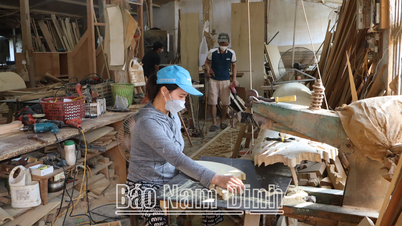

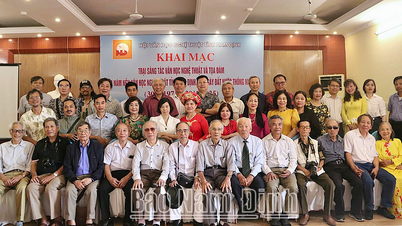




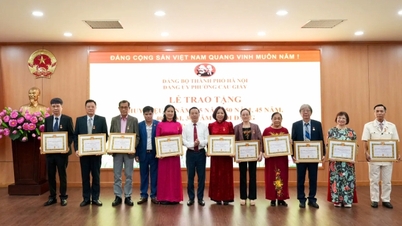
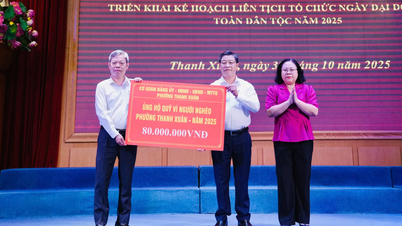
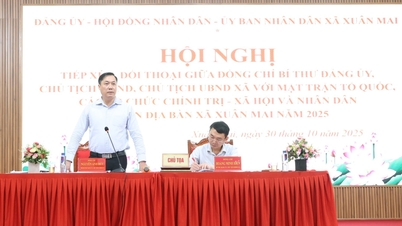
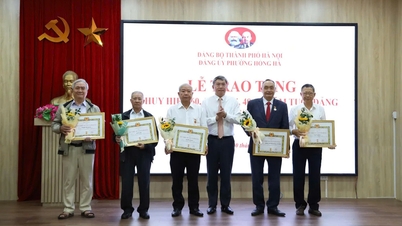



































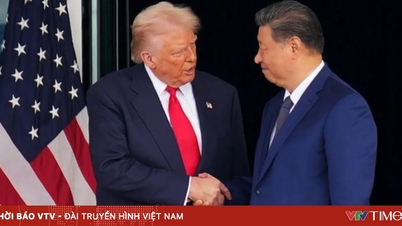

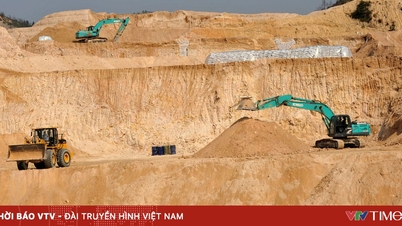


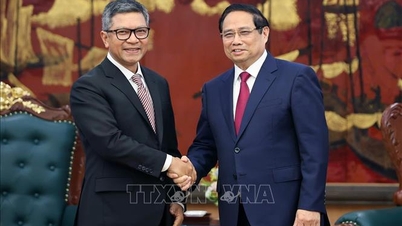
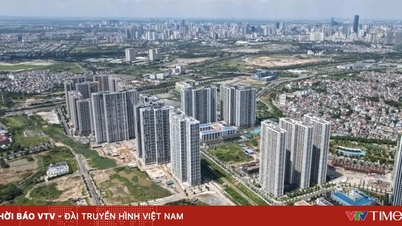





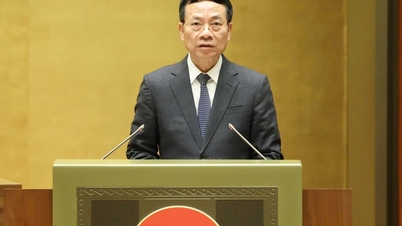
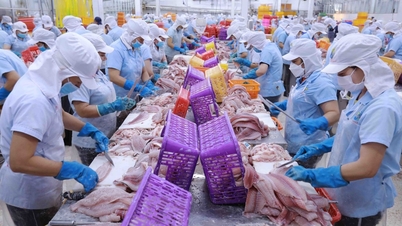
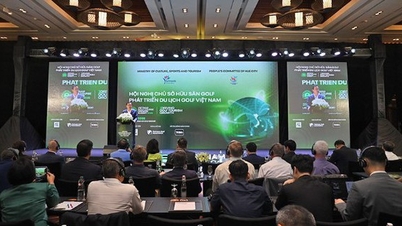




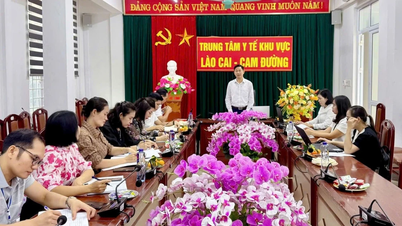




















Comment (0)